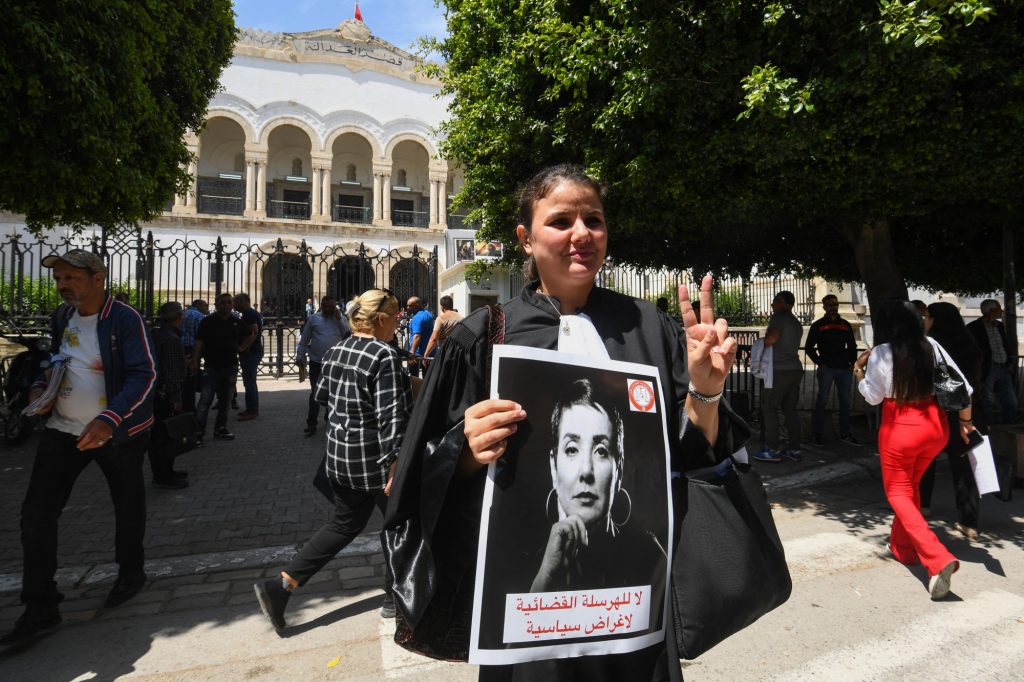A wave of arrests targeting government critics, lawyers, and journalists has swept through Tunisia, causing growing concerns among the international community and its allies.
Activists such as Saadia Mosbah, France 24 cameraman Hamdi Tlil, and Lawyer Sonia Dahman were detained during a crackdown on perceived opponents ordered by the administration of Kais Saied.
While Tlil has been released without charges, radio journalist Borhen Bsaies and columnist Mourad Zeghidi remain in pre-trial detention, facing accusations of violating cybercrime laws by allegedly disseminating fake news and undermining state security.
Bsaies’ lawyer argues that there is insufficient evidence linking his client to any of the charges.
Reporters Without Borders, an international non-profit organisation dedicated to defending the right to freedom of information, has condemned the arrests and is urging an end to the government’s “authoritarian tactics”.
In Tunisia, criticism of President Kais Saied often results in accusations of undermining state security, constituting an assault on press freedom. The European Union, Tunisia’s primary trading partner, has expressed concern over the arrests. These developments signal a troubling trend in Tunisia.

“Freedoms of expression and association, as well as the independence of the judiciary, are guaranteed by the Tunisian Constitution and constitute the basis of our partnership,” its spokesperson said in a statement.
State Department spokesperson Vedant Patel told reporters that the U.S. was engaging Tunisia about the arrests, particularly those of attorneys.
“This kind of action is inconsistent with what we think are universal rights that are explicitly guaranteed in the Tunisian constitution, and we’ve been clear about that at all levels,” he said.
These arrests are the most recent in a series made under the contentious Decree 54, a controversial cybercrime law utilised to detain prominent political adversaries since 2022.
The legislation has garnered condemnation from Tunisia’s Labour Union and its journalistic affiliate.
Tunisia serves as a pivotal ally for both the U.S. and the EU, particularly concerning matters spanning security and Mediterranean migration.
As stated by the General Union of Journalists on Tuesday, the law is being used to witch-hunt opposition and stifle freedom of expression. The union called it “a sword of Damocles hanging over the heads of journalists.”
The union highlighted that the two detained journalists face the threat of significant fines and potential imprisonment for up to five years if convicted by a court of law next week.
This is Saied’s first term in office and the arrests mark the beginning of a turbulent administration which also faces an unscheduled presidential election expected later in the year.
Opposition parties and individuals are expected to back down.


